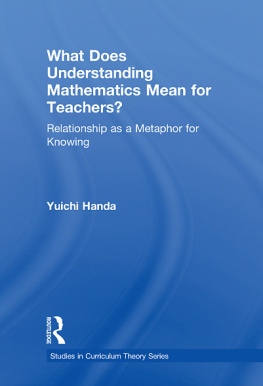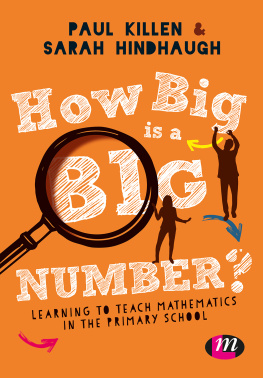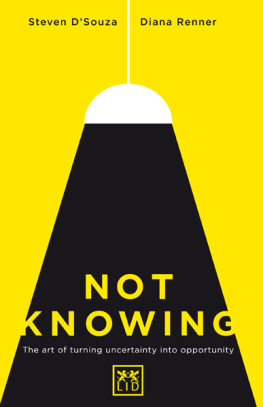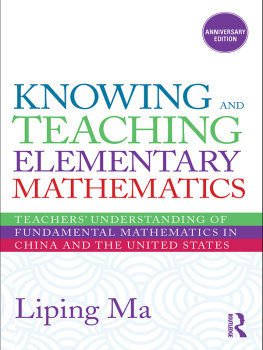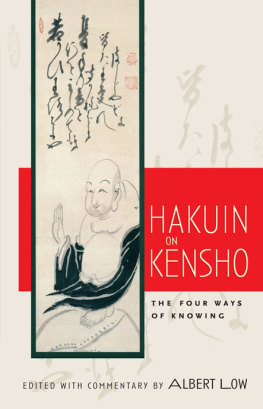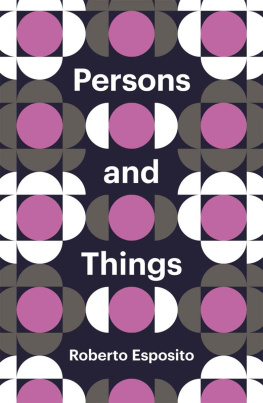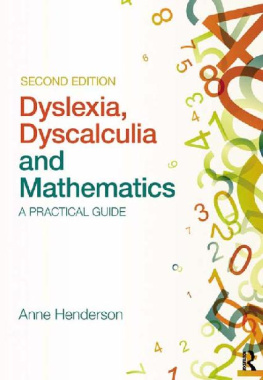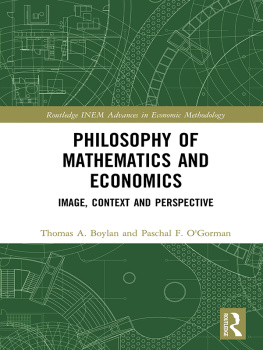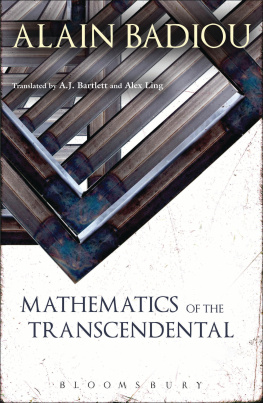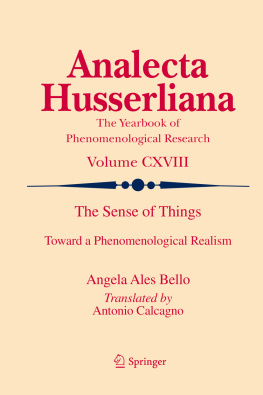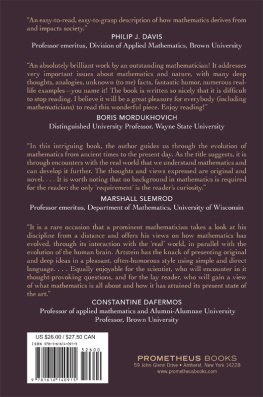WHAT DOES UNDERSTANDING MATHEMATICS MEAN FOR TEACHERS?
Each year countless legions of school children struggle through a version of mathematics denuded of passion, denuded of intellect, denuded of the intrigue that has sustained this ancient art through the millennia. Yet some few teachers, inspired by their subject, go beyond the school-math tradition of recipe and rehearsal to tinge their instruction with a sense of open-ended possibility that is the true heart of mathematics. In describing his singular journey to be in relationship with mathematics Yuichi Handa lays a pathway that ALL mathematics teachers should be invited to explore in relation to their own emergent practice of teaching.
David Kirshner, Louisiana State University
This book is the first devoted to exploring teachers relationship with the subject they teach, not in a professional sense but in a personal sense. The question is not How much do I know about the subject? but rather How do I interact with the subjectwhat kind of relationship do mathematics and I have?. This personalized view promises to unlock new ways of thinking about knowing, and new ways of understanding and explaining the nature of classroom teaching. All teachers, from primary grades to graduate level courses, can find themselves in this eye-opening and inspiring book.
James Hiebert, University of Delaware
Opening up alternative ways of thinking and talking about ways in which a person can know a subject (in this case, mathematics), this book leads to a reconsideration of what it may mean to be a teacher of that subject.
In a number of European languages, a distinction is made in ways of knowing that in the English language is collapsed into the singular word know. In French, for example, to know in the savoir sense is to know things, facts, names, how and why things work, and so on, whereas to know in the connatre sense is to know a person, a place, or even a thingnamely, an otherin such a way that one is familiar with, or in relationship with this other.
In mathematics education, the focus generally tends to be on how learners and teachers know mathematics in the savoir sense, and rarely (if explicitly) in this other connatre manner. Of course, part of the reason for this may be the absence of a clear image of what this manner of knowing mathematics would look like. Primarily through phenomenological reflection with a touch of empirical input, this book fleshes out an image for what a persons connatre knowing of mathematics might mean, turning to mathematics teachers and teacher educators to help clarify this image.
Yuichi Handa is Assistant Professor of Mathematics, California State University, Chico.
STUDIES IN CURRICULUM THEORY
William F. Pinar, Series Editor
Handa | What Does Understanding Mathematics Mean for Teachers? Relationship as a Metaphor for Knowing |
Joseph (Ed.) | Cultures of Curriculum, Second Edition |
Sandlin/Schultz/Burdick (Eds.) | Handbook of Public Pedagogy: Education and Learning Beyond Schooling |
Malewski (Ed.) | Curriculum Studies Handbook The Next Moment |
Pinar | The Wordliness of a Cosmopolitan Education: Passionate Lives in Public Service |
Taubman | Teaching By Numbers: Deconstructing the Discourse of Standards and Accountability in Education |
Appelbaum | Childrens Books for Grown-Up Teachers: Reading and Writing Curriculum Theory |
Eppert/Wang (Eds.) | Cross-Cultural Studies in Curriculum: Eastern Thought, Educational Insights |
Jardine/Friesen/Clifford | Curriculum in Abundance |
Autio | Subjectivity, Curriculum, and Society: Between and Beyond German Didaktik and Anglo-American Curriculum Studies |
Brantlinger (Ed.) | Who Benefits from Special Education? Remediating (Fixing) Other Peoples Children |
Pinar/Irwin (Eds.) | Curriculum in a New Key: The Collected Works of Ted T. Aoki |
Reynolds/Webber (Eds.) | Expanding Curriculum Theory: Dis/Positions and Lines of Flight |
Pinar | What Is Curriculum Theory? |
McKnight | Schooling, The Puritan Imperative, and the Molding of an American National Identity: Educations Errand Into the Wilderness |
Pinar (Ed.) | International Handbook of Curriculum Research |
Morris | Curriculum and the Holocaust: Competing Sites of Memory and Representation |
Doll | Like Letters In Running Water: A Mythopoetics of Curriculum |
Westbury/Hopmann/Riquarts (Eds.) | Teaching as a Reflective Practice: The German Didaktic Tradition |
Reid | Curriculum as Institution and Practice: Essays in the Deliberative Tradition |
Pinar (Ed.) | Queer Theory in Education |
Huebner | The Lure of the Transcendent: Collected Essays by Dwayne E. Huebner. Edited by Vikki Hillis. Collected and Introduced by William F. Pinar |
For additional information on titles in the Studies in Curriculum Theory series visit www.routledge.com/education
WHAT DOES UNDERSTANDING MATHEMATICS MEAN FOR TEACHERS?
Relationship as a Metaphor for Knowing
Yuichi Handa
California State University, Chico

NEW YORK AND LONDON
First published 2011
by Routledge
711 Third Avenue, New York, NY 10017
Simultaneously published in the UK
by Routledge
2 Park Square, Milton Park, Abingdon, Oxon OX14 4RN
Routledge is an imprint of the Taylor & Francis Group, an informa business
This edition published in the Taylor & Francis e-Library, 2011.
To purchase your own copy of this or any of Taylor & Francis or Routledges collection of thousands of eBooks please go to www.eBookstore.tandf.co.uk.
2011 Taylor & Francis
The right of Yuichi Handa to be identified as author of this work has been asserted by him in accordance with sections 77 and 78 of the Copyright, Designs and Patents Act 1988.
All rights reserved. No part of this book may be reprinted or reproduced or utilized in any form or by any electronic, mechanical, or other means, now known or hereafter invented, including photocopying and recording, or in any information storage or retrieval system, without permission in writing from the publishers.
Trademark Notice: Product or corporate names may be trademarks or registered trademarks, and are used only for identification and explanation without intent to infringe.
Library of Congress Cataloging in Publication Data
Handa, Yuichi.

